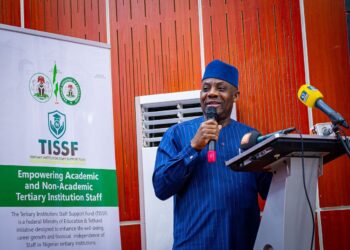The Federal Government has announced a comprehensive seven-year moratorium on establishing new federal universities, polytechnics, and colleges of education across Nigeria.
Education Minister Tunji Alausa disclosed this decision Wednesday following a Federal Executive Council meeting presided over by President Bola Tinubu, citing the need to prioritize quality over quantity in the nation’s tertiary education sector.
The minister explained that Nigeria’s educational challenge stems not from inadequate access to federal institutions, but from an oversupply that has resulted in declining standards and infrastructure deterioration.
“In our country, access to quality tertiary education is no longer an issue. What we are witnessing today is duplication of new federal tertiary institutions, a significant reduction in the current capacity of each institution, and degradation of both physical infrastructure and manpower,” Alausa stated.
He warned that without decisive action, continued proliferation of institutions would lead to “marked declines in educational quality and undermine the international respect that Nigerian graduates command.”
The minister highlighted alarming inefficiencies within the current system, revealing that some federal institutions operate with more staff than students. He cited one federal university with fewer than 800 students but employing 1,200 staff members as an example of systemic waste.
According to Alausa’s statistics, Nigeria currently operates 72 public federal universities, 42 federal polytechnics, and 28 federal colleges of education, alongside numerous state and private institutions. Despite this extensive network, many institutions struggle to attract students.
The minister revealed that during the 2024/2025 academic session, 199 universities recorded fewer than 100 applicants through the Joint Admissions and Matriculation Board (JAMB), while 34 institutions received zero applications.
The situation appears equally challenging for other tertiary institutions, with 295 polytechnics recording fewer than 100 applicants and 64 colleges of education registering zero applicants.
Rather than creating additional institutions, the government plans to focus resources on upgrading existing facilities and improving educational quality. The moratorium aims to consolidate operations, enhance infrastructure, and optimize staffing across current federal tertiary institutions.
Alausa expressed appreciation to President Tinubu for demonstrating “political will and commitment” to educational reform through this strategic decision.
The seven-year ban represents a significant policy shift for Nigeria’s education sector, prioritizing institutional development over expansion as the government seeks to restore the global reputation of Nigerian tertiary education.




















